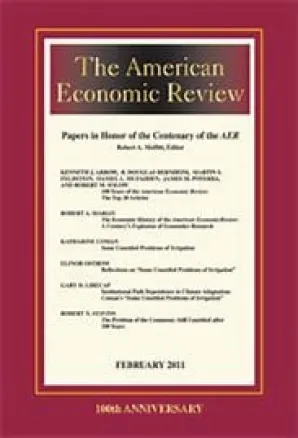

American Economic Review VOL. 109, NO. 3, MARCH 2019 (pp. 1116-54)
Households with familiarity biases tilt their portfolios toward a few risky assets. The resulting mean-variance loss from portfolio underdiversification is equivalent to only a modest reduction of about 1 percent per year in a household's portfolio return. However, once we consider also the effect of familiarity biases on the asset-allocation and intertemporal consumption-savings decisions, the welfare loss is multiplied by a factor of four. In general equilibrium, the suboptimal decisions of households distort also aggregate growth, amplifying further the overall social welfare loss. Our findings demonstrate that financial markets are not a mere sideshow to the real economy and that improving the financial decisions of households can lead to large benefits, not just for individual households, but also for society.
